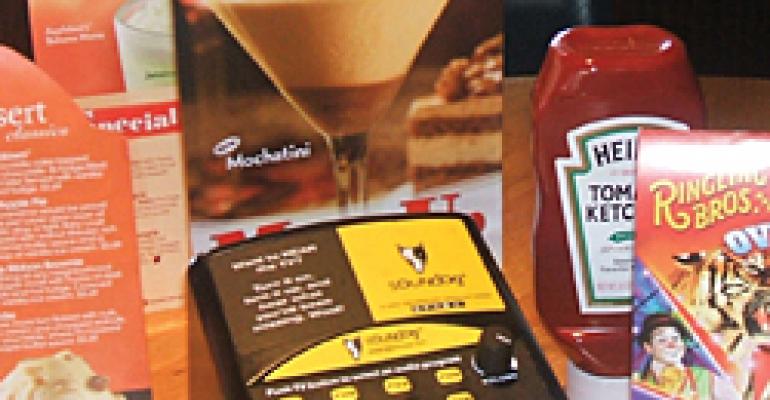HARRISON N.Y. At a time when many operators are pinching pennies just to break even, 30-unit Applebee’s franchisee Apple-Metro is spending millions to upgrade kitchen ordering systems and add dining room amenities. The investment is significant, said Apple-Metro chairman Zane Tankel, but it’s paying off in spades. Same-store sales have risen dramatically over the past year, and order throughput time has dropped nearly 29 percent.
“We made capital investments of more than $2 million to get our restaurants to a point where they could out-produce our competitors,” asserted Tankel, whose company is based here. “That’s an investment with a purpose. It’s not spending money just to spend money.”
Year to date, Apple-Metro’s comps are up 10 percent over 2007, when it topped its 2006 comps by 4.8 percent. “This is our best year since we got into this business in 1995,” he added.
Tankel said Apple-Metro “bit the bullet” about a year-and-a-half ago when it started installing computerized kitchen display systems, or KDS, to speed up order flow. A common fixture in fast-food operations, a KDS removes expediting duties from human hands and places them in the control of a computer that dictates when orders arrive at each station. Instead of listening for the expediter, cooks monitor video screens that tell them when to produce items based on their unique production times.
“If a steak and a salad are ordered, the KDS will delay the entry into the kitchen for the salad. Based on the steak’s thickness and doneness, that’s when it orders the salad,” said Miguel Fernandez, formerly a veteran senior vice president at Applebee’s International, who became Apple-Metro’s chief operating officer 10 months ago. When a green-lighted instruction appears on the screen, the cook knows to prepare it. If that item’s color turns to black, the cook knows it’s nearing the production time limit. When the time limit is exceeded, it turns red.
“Before KDS, our goal was to get orders to guests in 14 minutes. Now about 70 percent of what we serve comes to guest in 10 minutes or less,” said Fernandez. “It’s an excellent management system.”
Ironically, while food quality, ingredients and preparations haven’t changed, Fernandez said guests surveyed have given those variables higher ratings since the KDS was implemented.
“All that’s really changed for guests is we’ve avoided the problem of food sitting in the window too long: things that should be cold are now served cold, and those you want hot are hot,” he said. At a cost of about $40,000-plus per store, Fernandez said, the system has more than paid for itself. “But even if it would have been a break-even investment, it would have been worth it because our food is much better executed.”
For its KDS system, Apple-Metro is using Louisville, Ky.-based QSR Automations’ ePic Kitchen Display Software, ePic video controllers and KP-3000 or KP-4000 keypads.
Out in the dining room, Apple-Metro began installing high-tech personal viewing systems, also known as a PVS, in stores about a year ago. Per restaurant, about a half dozen flat-screen TVs are mounted above and around the bar, and patrons who can see those screens can request a small wireless tuner and speaker box that allows them to hear one of six programs visible on-screen.
“It basically looks like a portable air purifier and has two little knobs: one for volume and one that tunes into any of the six TVs,” said Tankel. “The technology allows the sound to be heard only by the people at the table, not at the tables around them.”
On average, a PVS system runs about $50,000 per restaurant, which includes TVs, an average of 25 tuners and installation. Tankel said the system attracts a blend of single diners who appreciate its semi-privacy, and groups that come to watch sporting events.
Apple-Metro’s tableside audio-control device is the Soundog system from Sprox Inc. of Charlevoix, Mich.
“We have a [program schedule] printed out that shows what’s coming up that week on the channels we have,” Tankel said. “The PVS gives us the ability to compete with companies like Buffalo Wild Wings who serve that crowd. It gives customers more options.”
Though clearly satisfied with the advances made in his company’s tech investments, Tankel said all would be for naught if Apple-Metro didn’t focus on the staff using them.
“We hear so much talk about customer service, about how the customer always must come first,” said Tankel. “I believe that if I take care of my employees first, they’ll take care of the customer. Happy employees make happy guests. … So all these investments we’ve made in our operations won’t matter if our people aren’t happy. You can’t just do one without the other.”

